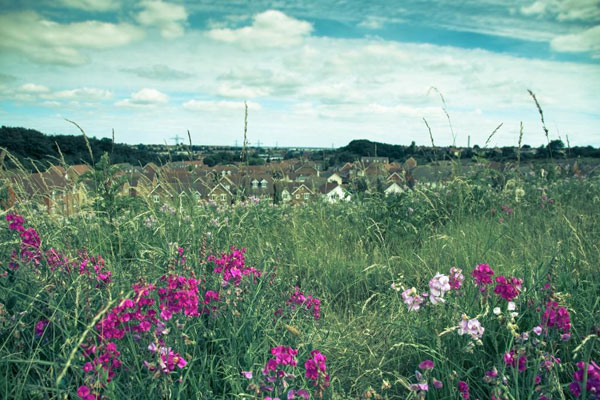14th October 2015
Short term wins, but is detrimental to society long term?
The Land Trust welcomes the recent Government announcement in its bill to propose automatic planning permission in principle on brownfield sites to speed up appropriate development, but is concerned that by relaxing the planning process on brownfield land, it removes the crucial decision making process to ensure that the use of land is appropriately balanced.
Euan Hall, CEO of the Land Trust said: “It is true that brownfield sites are valuable sources of land for development. However, they are also extremely valuable when transformed into sustainable green open spaces. Therefore, there is a need to balance the use of brownfield for development and for green space to create places for people to live, work and play.
But by relaxing the planning process, who will champion the green spaces and decide the most appropriate use for the land?”
Brownfield sites, particularly in urban areas can have substantial value by serving different purposes:
As a result, this can have significant benefits to the UK economy.
Without a system in place, these important elements could be overlooked.
Hall added: “I find it is disappointing that the decision is not tacking the actual issue, which is to have a joined up approach to land use across the country. Relaxing the planning process is a short term win, and will have long term detrimental impacts on society.”
The Land Trust has demonstrated that where brownfield, which is not suitable for development, can have greater value as green open space. Its former oil refinery; Canvey Wick in Essex has been hailed as a “brownfield rainforest” and its disused power station; Oliver Road Lagoons in Thurrock, is a wildlife haven, with wildflower-rich habitats, supporting over 1,300 species, 50 of which are classified as endangered. Both of these sites have SSSI status (Site of Special Scientific Interest) and are nationally recognised for their ecological importance, supporting key ecosystem services, and in turn, supporting our economy.
If there is no organisation to administer the correct use of land, then the balance between the built environment and green spaces could be lost, which would be detrimental to society.
Taking on board the benefits that different uses of brownfield land can have to society, the planning process is important for ensuring that conditions are put in place and land is used appropriately, to carefully create places where people want to live, work and play, whilst supporting the environment and important ecosystems.
Hal concluded: “Therefore, there needs to be a joined up approach to land use in the UK with a process to identify the suitability of the land, whether this is for development, for public open space or both.”

If you have any questions or queries about what we do or how to go about working with us we'd love to hear from.
Contact usWe are always on the look out for enthusiastic, committed people who want to make a real and lasting difference in their local community.
Get Involved